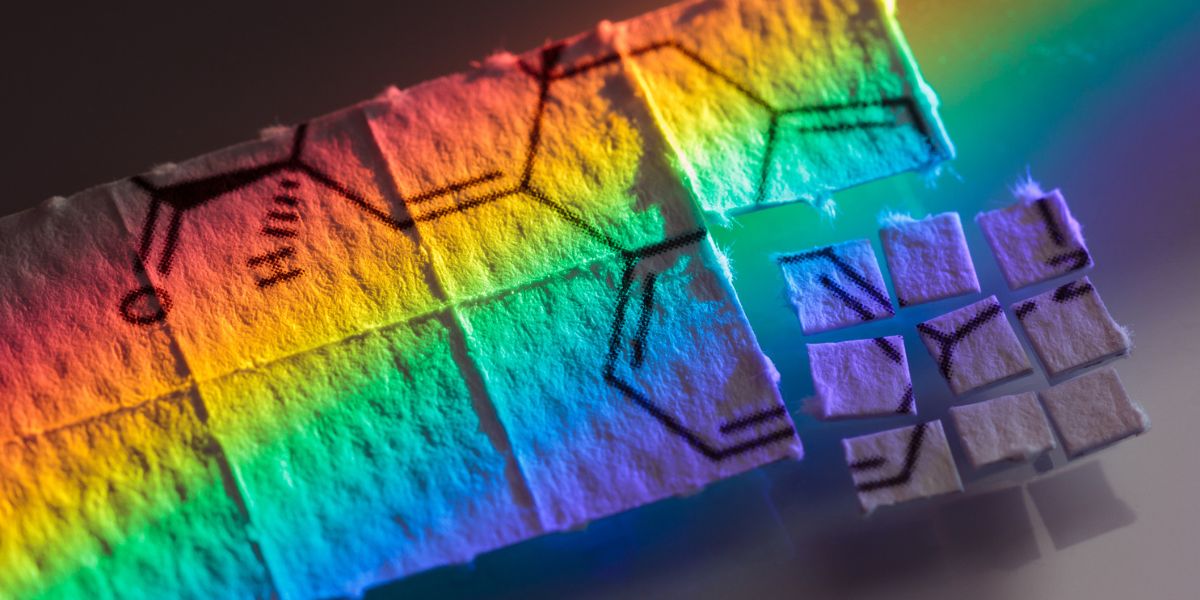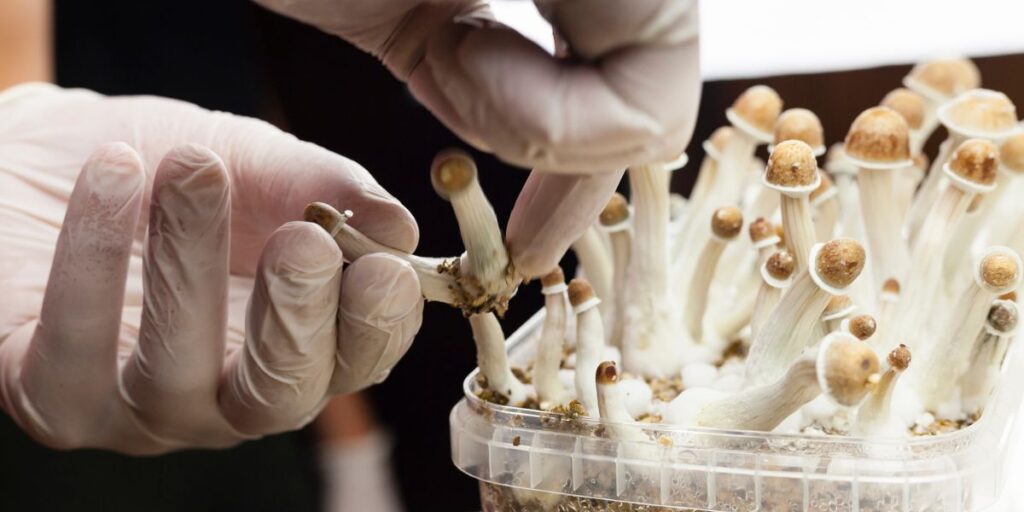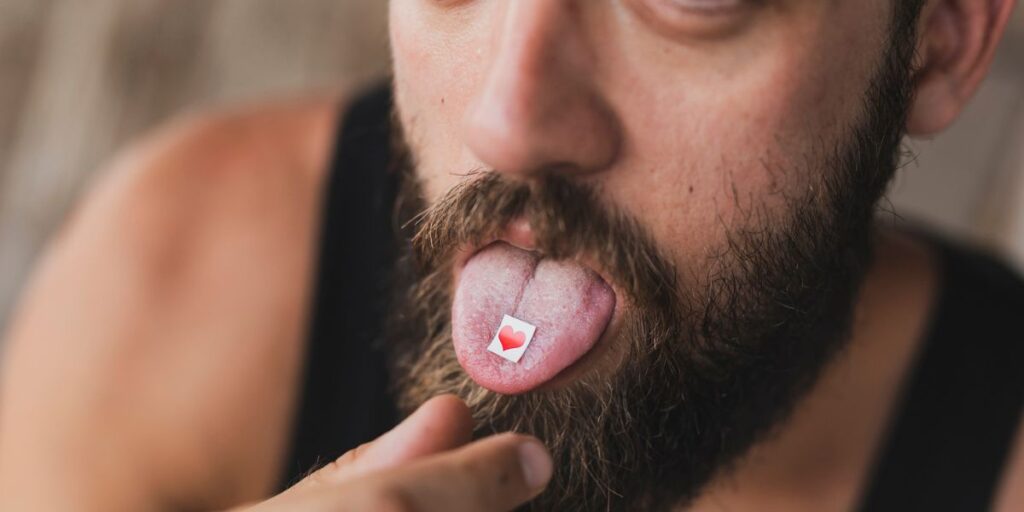What Are Hallucinogens?

From Native American ancient rituals to modern labs studying white powder, hallucinogens or psychedelics shift how we see time and reality, sparking much interest and discussion.
Talking about LSD often brings up thoughts of 1960s hippies or young people at a party experiencing psychedelic effects, like saying they can see music. While these are extreme cases, the truth is users of hallucinogens come from all walks of life. Yet, everyone, from newbies to regular users, faces the risk of a “bad trip” and the long-term consequences of abusing these drugs.
At first, many use hallucinogens for fun, but they soon turn to them as a way to deal with more significant problems. Getting mentally hooked on these drugs is easier and riskier than a lot of people think.
What Are Hallucinogens?
Hallucinogens are mind-altering psychedelic drugs that come from plants or are made in labs, altering a person’s reality and changing their sense of time and place. They mainly twist what you see but can also make you see, hear, smell, and feel things that aren’t real.
Types of Hallucinogens
Hallucinogenic substances fall into two categories: traditional hallucinogens and dissociative drugs. Each category encompasses various forms, differing in their origins and impact on the user.
Classic hallucinogens alter your perceptions, while dissociative drugs change what you experience.
Classic Hallucinogens
Classic hallucinogens mainly change how a person sees and understands reality. They lead to more intense and different senses, strong feelings, and experiences where the senses mix.
In some cultures, classic hallucinogens are used in tribal and religious rituals, with the belief that they assist in reaching enlightenment or a greater understanding of oneself.
Conventional hallucinogenic psychedelic substances include:
- LSD, also referred to as D-lysergic acid diethylamide
- Psilocybin mushrooms, commonly referred to as magic mushrooms
- N, N-dimethyltryptamine, or DMT
- Salvia divinorum
- Peyote cactus, or mescaline

Dissociative Drugs
Dissociative drugs are mind-altering like hallucinogens, but they make you feel detached or like you’re outside your body. They’re more about losing sense of your surroundings than changing how you sense them.
The following are examples of dissociative drugs:
- Phencyclidine, also known as PCP
- Ketamine
- Dextromethorphan, or DXM
Most classic hallucinogens come from nature, while most dissociative drugs are made in labs.
In the United States, hallucinogens are mostly Schedule I drugs, except PCP and ketamine, placed in Schedule II and III for their medical uses. Some cities, however, allow psilocybin (magic mushrooms) for religious and healing reasons despite the overall ban.
Effects of Hallucinogenic Drugs
The psychological effects of hallucinogenic drugs are because of their active components and how they work with the brain. Scientists are still figuring out all the details of their chemical effects but have discovered the main ways they operate.
Classic hallucinogens mainly impact the release of serotonin and the way the brain processes signals and communication throughout the body.
Serotonin helps control:
- Mood
- Body temperature
- How we sense things
- Sexual behavior
- Sleep
- Hunger
- How the bowel works
Dissociative drugs affect serotonin but mainly target glutamate, a chemical messenger important for transmitting information to the brain.
Glutamate is involved in controlling:
- How we perceive and react to pain
- How we respond to what’s around us and to different inputs
- Feelings
- Learning and understanding
- Remembering things
The term “trip” originally described the experience of taking LSD or acid. A “bad trip” happens when the visions are upsetting and the experience is unenjoyable.
Each hallucinogen’s effects vary by amount, how it’s taken, and who uses it. The user’s mental state and any other health issues play a significant role in their experience.
Taking hallucinogens, especially in high doses and in unfamiliar or unsafe settings, increases the risk of a bad trip. If you wouldn’t enjoy a situation while sober, chances are, you won’t enjoy it when you’re hallucinating, either.
Hallucinogenic Short-Term Effects
The immediate effects of hallucinogens depend on the drug, who’s taking it, the amount, and any other substances used at the same time. While the effects are primarily mental, physical responses are inevitable because of the chemical reactions in the brain.
The duration of a trip also varies. For example, LSD can affect you for 12 hours, while DMT’s effects typically last around 15 minutes.
Even if two people take the same kind and amount of substance, their experiences will not be identical.
The usual quick effects of using hallucinogens are:
- Rapid heart rate
- Raised blood pressure
- Increased body temperature
- Fast breathing
- Perspiring
- Observing bright and dynamic hues and patterns
- Experiencing, listening, observing, and sensing non-existent things
- Profound and mystical emotions
- Modified perception of time
- Odd and invasive ideas
- Bliss
- Suspicion
- Worry
- Parched mouth
- Lack of coordination
- Gazing intently at one location
- Bewilderment
- Vertigo
- Chaotic thinking
- Experiencing depersonalization, or the sensation of being detached from your own body
- Undergoing derealization, or the perception that the objects and individuals in your surroundings are not real
- Feeling of sickness
- Incapacity to mobilize
- Sudden fear
- Restlessness
- Impulses of aggression
- Considerations of suicide or self-inflicted injury
There’s no cure for the effects of hallucinogens. To help feel better, it’s good to stay in a calm, dark area until the effects lessen. Giving it time is the only remedy to get better from a bad trip.

Hallucinogenic Long-Term Effects
Using hallucinogens a lot might lead to permanent changes in your body and mind. These substances can upset the chemical balance in your brain and change how you act, causing severe problems.
Just like the quick effects of hallucinogens, the long-lasting impacts can be different for each person. These depend on how serious and how long the use was, which drug and how much was used, and if any other health issues are happening at the same time.
Long-lasting side effects of hallucinogens include:
- Drug cravings
- Compulsive drug-seeking behaviors
- Resistance to the drug’s effects
- Forgetting things
- Trouble speaking
- Impaired coordination
- Fluctuations in weight
- Feelings of sadness
- Feelings of worry
- Symptoms of withdrawal
- Thoughts of ending one’s life
- Hallucinogen persisting perception disorder (HPPD)
Hallucinogen Withdrawal
When stopping hallucinogenic drugs, most of the withdrawal signs are in the mind and how someone acts. But some of these drugs, like PCP and ketamine, which make you feel detached from yourself and the world, also lead to physical symptoms.
Upon discontinuing the use of hallucinogens, an individual may experience:
- Very tired
- Incapable of remaining motionless-
- Mood swings
- Intense drug cravings
- Worried
- Sudden fear or panic
- Severe sweating
- Not hungry or very hungry
- Can’t remember everyday things
- Fluctuating blood pressure and heartbeat
- Shaking or twitching
- Very sensitive to lights and sounds
- Having mean or scary thoughts, they can’t control
- Thinking about hurting oneself
Stopping hallucinogens can lead to intense emotional ups and downs and urges to act in risky ways. One big plus of staying in a treatment center is getting medical detox and around-the-clock help. This support helps calm all withdrawal symptoms and stops someone from doing something harmful because of evil thoughts.
Rehab for Hallucinogen Treatment
Using hallucinogens too much shows how deep-seated issues can easily lead to risky actions and substance use disorders (SUDs).
At Northridge Addiction Treatment Center, we focus on treating both the direct impacts of addiction and digging deep to find out why you started using hallucinogens to begin with.
If severe withdrawal symptoms are a concern for you, we provide on-site medical detox with constant medical care and support to make sure you stay as safe and comfortable as possible.
While you’re with us in our peaceful residential treatment center, the NATC team will create a customized treatment plan for you. This plan will meet your needs and teach you new, healthy ways to do well without risking your progress in recovery.
Contact us today. Our compassionate and helpful treatment specialists are eager to help you get on the path to your recovery process that will last for life.
Find Meaningful Recovery
Our caring and compassionate specialists are eager to help you comfortably navigate this journey to recovery. Our individualized treatment plan, programs, and therapies may be a perfect match for you or your loved one. Let us assist you in living the happy life you deserve. It starts with a phone call.




